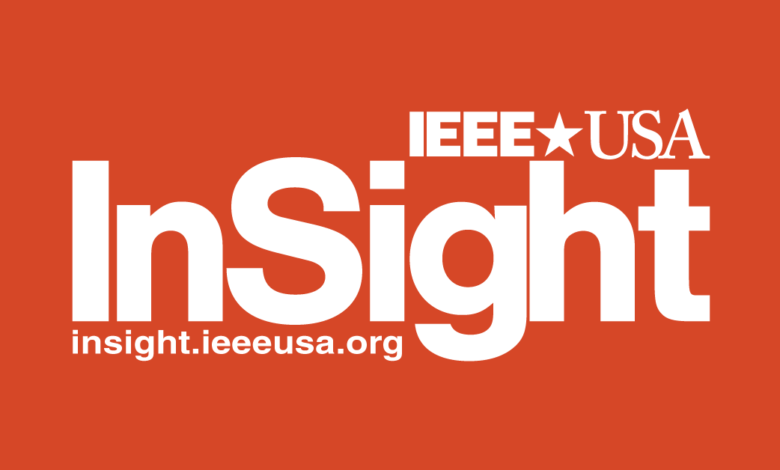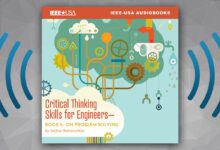
“It is what you read when you don’t have to, that determines what you will be when you can’t help it,” Oscar Wilde advised.
And: “Isn’t life a series of images that change as they repeat themselves?” Andy Warhol asked.
Our culture is filled with reminders to study history, and most of us survived a grade school curriculum that taught state, national and world history. However, very little of that time was spent on STEM history and college usually fails to close the gap. Even as electrical engineering students, most of us have only a cursory knowledge of the histories of Bell Labs, the transistor, and software development; or even companies that still exist, such as IBM or Apple. This lack makes us worse engineers: learning about the people, processes and environments under which our field grew makes for more creative technology leaders who can predict trends and apply historical lessons to new problems. However, when engineering classes are (understandably) too busy to cover history, we can augment their technical education by reading about and from the past.
Reading helps us learn about various industries and discover characteristics of work environments that we may enjoy. For example, as a new MS/Ph.D. student, I’m interested in the processes that have led to breakthrough research, and how I can replicate them for my own work. I recently finished The Idea Factory: Bell Labs and the Great Age of American Innovation, by Jon Gertner. The book describes the development of the transistor, information theory and modern communications-emphasizing the unique characteristics of the company that housed those revolutions. By reading it, I’m more conversant in the history of my field, and the impact of future developments. More importantly, along with a tour of Janelia Research Campus (modeled after Bell Labs) I recently took, the book enables me to compare academic, industrial and institutional research environments. I can use these comparisons to both develop better research habits, and also find a work environment that suits me after graduation. By reading about different companies, we can leverage our knowledge to better tailor our careers around our interests.
In addition to advancing personal career development, reading history better prepares us to solve problems we will face at work-the most difficult of which won’t be technical. Such problems have a tendency to repeat themselves. For example, a recent Washington Post article titled, “A Disaster Foretold-and Ignored” tells the story of a hacking syndicate who testified in Congress about the vulnerabilities of the nascent Internet almost two decades ago. Though policymakers professed to understand the threat, nothing was done, leading to today’s vulnerabilities and cyberattacks. The article conveys to new software engineers and cybersecurity professionals the magnitude of the security challenge-and how (not) to solve it: complaining about problems is often both easy and necessary, but it’s far more productive to seek solutions that acknowledge the customers’ perspectives, and then to provide actionable solutions that meet their constraints. Embracing such insights from past problems, which tend to occur repeatedly in history, leads to more thoughtful discussion and better solutions.
Finally, reading often provides advice about problems we may not know we have. For example, in Berkshire Hathaway’s 2014 Annual Report, Warren Buffet and Charles Munger offer perspectives on the company’s history. Though the report contains business advice, it provides lessons for STEM-based projects and organizations. The report describes the company’s preferred management style and structure, presaging Google’s transformation into Alphabet, as it continued to expand.
Further, while our college projects are far different-in both scale and application-than companies, reading history helps us manage our own projects and teams. Munger’s age-old advice to Buffet, for example, to “forget what you know about buying fair businesses at wonderful prices; instead, buy wonderful businesses at fair prices” is valuable for students deciding which projects to pursue in their spare time. Such knowledge from leaders today will turn us into leaders tomorrow.
You can’t predict what insights reading a particular book or article will yield, but you can be sure that reading history books will help you in your academic and professional careers. Finding time to read may be difficult alongside classes, labs and your social life, but it’s not impossible. You can listen to audiobooks while walking to class; or read for a few minutes before you fall asleep each night, for example.
I encourage you to pick up a book today-and “determine what you will be when you can’t help it.”
Nikhil Garg is an entering MS/Ph.D. student in electrical engineering at Stanford University. He graduated from the University of Texas at Austin, with a B.S. in Electrical & Computer Engineering, and a B.A. in Plan II in 2015. He can be reached at nkgarg@stanford.edu or gargnikhil.com.






